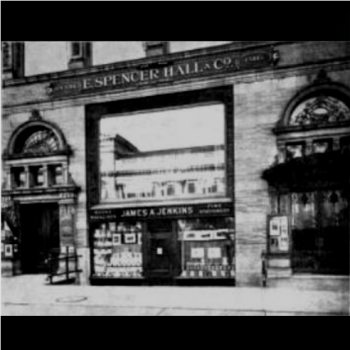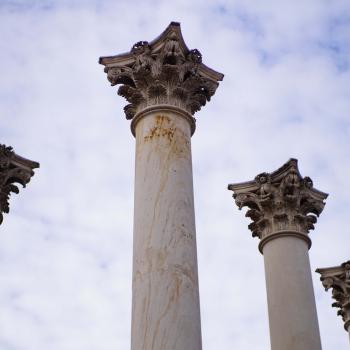Shorn of his outback beard, his cartoonish countenance dignified by the garb and pomp of an Ivy league ambience, and capped with the famous red hair that ascends from his forehead like the Cliffs of Moher, Conan O'Brien stood before Dartmouth's Class of 2011 to tell them that it's okay to fail.
"Disappointment stings," he said, but "[i]t's simple: there are few things more liberating in this life than having your worst fear realized."
O'Brien spoke from experience. After roughly two decades hosting "Late Night with Conan O'Brien" at NBC, O'Brien reached the bigs, ascending a post in comedy akin to wearing pinstripes in Major League Baseball: In June of 2009, O'Brien took over as host of "The Tonight Show."
About seven months later, he was gone, with Jay Leno shortly to return. According to O'Brien, "It was the making of a career disaster . . ." In the wake of his embarrassing exit, O'Brien spent almost a year yielding to "silly, unconventional, spontaneous and seemingly irrational things," which, paradoxically, served as the fuel for his comeback. On November 8, 2010, O'Brien debuted a new show on the television station TBS.
For O'Brien, the period after "The Tonight Show" departure was disorienting. But it was rich with growth. "It is our failure to become our perceived ideal," he said, "that ultimately defines us and makes us unique."
O'Brien's candid talk about collapse echoes J.K. Rowling's June 2008 speech delivered at O'Brien's alma mater, Harvard University. Like O'Brien, the mind that launched millions of wizard lovers focused on failure and fear. By her late twenties, Rowling disclosed, she "had failed on an epic scale." An unemployed single parent, she was "as poor as it is possible to be in modern Britain, without being homeless."
Those throes became the crucible of her revival. Anticipating O'Brien, and with lyrical eloquence, Rowling noted that
failure meant a stripping away of the inessential. I stopped pretending to myself that I was anything other than what I was, and began to direct all my energy into finishing the only work that mattered to me. Had I really succeeded at anything else, I might never have found the determination to succeed in the one arena I believed I truly belonged. I was set free, because my greatest fear had been realized, and I was still alive, and I still had a daughter whom I adored, and I had an old typewriter and a big idea. And so rock bottom became the solid foundation on which I rebuilt my life.
And so began the start of Harry Potter.
Amidst many lines to savor, two themes from the Rowling and O'Brien addresses must be highlighted. In disgrace with fortune and men's eyes, O'Brien and Rowling were forced to make decisions. The fragments of success and self-esteem that surrounded them like shattered glass raised questions: Did they want to yank out the glue and painstakingly reassemble a self-conception that lay in ruin? Or were they strong enough to discard and start over and build an image with something like steel?
We know now what they chose: each of them shed the old to embrace the new. In doing so, they found—and here is the second theme—freedom. O'Brien was "liberated," Rowling "set free." Failure became a rescuer, not an enemy; it unshackled them from an image of success and a pattern of achievement they found they no longer needed.
Neither O'Brien nor Rowling credited any part of this awakening to God or to religion. However, the experiences they describe provide a meeting space, or a kind of reflecting pool, for those anchored in the Christian tradition. Though O'Brien and Rowling may have no need for spiritual explanations, their accounts of resilience help illuminate the ancient truth of Christ: to save one's life, one must lose it.
I am reminded of one of the most remarkable episodes of failure in the history of our Church, the failure of a 16th century Basque soldier to become the worldly, womanizing, rich, and courtly figure he thought he was destined to be. In 1521, propelled by ego and valor, a thirty-year-old Iñigo Lopez de Loyola charged the French army at Pamplona and encountered a cannonball. The cannonball won, leaving Iñigo with a badly wounded leg and a long recovery in the Loyola family castle.
Defeated in battle, deprived of health, and determined to return to his old ways, the work of conversion began. To borrow from Rowling, it was time for God to strip away the inessential. There, in the solitude of convalescence, Iñigo began to discover (or, more appropriately, to discern) the one arena in which he truly belonged. It would be another twenty years before he would walk the streets of Rome as the founder and first Superior General of the Society of Jesus: but it was in the wake of catastrophe where Iñigo died and St. Ignatius was born.




